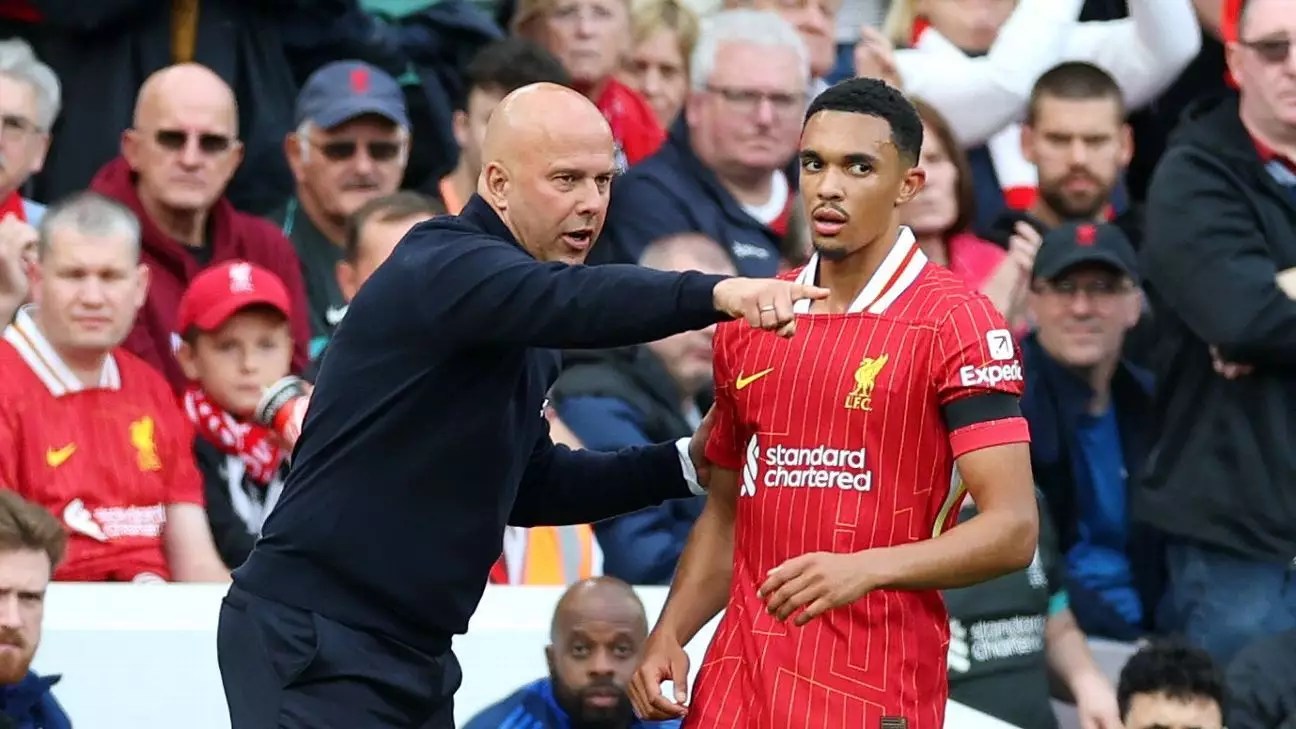In recent times, Trent Alexander-Arnold has expressed a refreshing attitude towards personal development and resilience as a defender in professional football. Known primarily for his attacking capabilities as a right-back for Liverpool, the 25-year-old player finds himself at a crossroads in his career where he is keen on enhancing his defensive skills. Following a convincing 3-0 victory against Bournemouth, Alexander-Arnold articulated his desire for constructive criticism from manager Arne Slot, indicating a profound commitment to transformation on the field.
Alexander-Arnold’s statement reflects a pivotal aspect of his growth mindset: acknowledging that there is room for improvement in his game. He has openly admitted that he wants to escape the shadow of a defensive reputation that detracts from his overall talent. The acknowledgment of Slot’s role as a mentor is particularly crucial; by inviting harsh critiques, Alexander-Arnold signals his readiness to confront his weaknesses head-on. His commitment to receive feedback, whether in individual meetings or during team discussions, reveals a determined approach to refine his defensive techniques.
The perception that Alexander-Arnold is defensively weak is one that has lingered despite his notable achievements. He believes this criticism may be somewhat exaggerated, describing the hurdles he faces in reshaping public opinion on his capabilities. “It is hard to shrug off one bad game,” he remarked, pointing to the challenges of consistency in performance as a defender. Yet, he highlighted the recent successes of Liverpool’s back line, emphasizing that four out of five clean sheets in the league showcase their collective potential and competence. This statistic serves not only as an argument against the criticism but also as a testament to the work being done internally to fortify defensive tactics.
During his post-match reflections, Alexander-Arnold showed remarkable clarity about the responsibilities that accompany his position. He emphasizes the importance of not just his individual performance, but also how his role affects the team as a whole. He sets specific goals for each match, monitoring metrics such as how often he is dribbled past or the number of crosses allowed. By holding himself accountable, he fosters a culture of excellence that transcends personal ambition, rooting his aspirations in team success.
As he registered his first assist of the season in the Bournemouth match, taking Liverpool to just one point behind league leaders Manchester City, Alexander-Arnold’s vision goes beyond assists and clean sheets. His ultimate goal is to evolve into a defender that opponents fear facing, embodying the determination to not only improve his own game but to contribute significantly to Liverpool’s legacy in the sport. This holistic approach to self-critique and development suggests that he is not just aiming to be good; he aspires to be the best, both for his own career and for the future of his team.


Leave a Reply